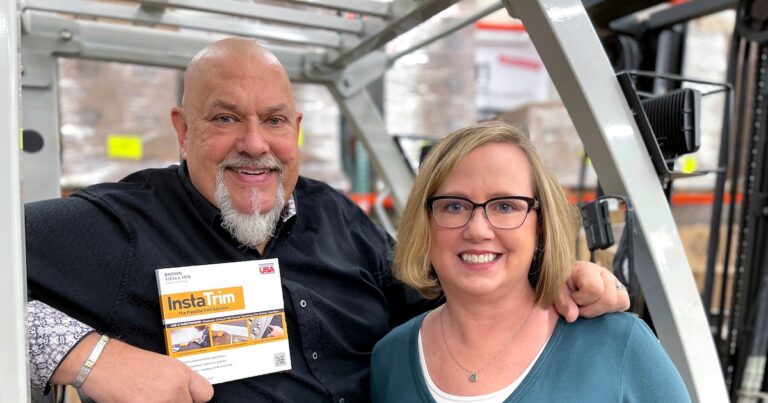If imitation is the sincerest form of flattery, then InstaTrim owner Greg Amundson wishes his business wasn’t so admired.
Over a decade, his made-in-Minnesota sealant grew to more than $3 million in sales last year.
But this year, sales are down by 35%.
Amundson and his lawyer attribute the abrupt decline to patent-infringing counterfeiters, mostly Chinese, who have launched about 30 similar products over the last several months on Amazon.com. InstaTrim had been relying on the e-commerce platform for about 80% of its sales.
“It’s amazing how fast the counterfeiters are eroding our sales with look-alike, copycat products,” Amundson said last week. “If you search Amazon for ‘flex-trim’ and ‘caulk strip,’ we used to show up on the first page, above the fold with InstaTrim products.
“Now you see all the copycat products that completely populate the first page, pushing us down. Fair competition is fair. But not the way they are doing it.”
Amundson, a former homebuilder who exited during the housing collapse in 2008, spent years building Scandia-based InstaTrim from idea to cash-flowing growth company.
Amazon has long been criticized as an easy place for counterfeiters to knock off everything from soaps, baby formula, clothing, accessories and toys to auto and aircraft parts.
Fast Company, the business magazine, reports that researchers estimate nearly $1 trillion worth of fake goods flood the global economy. Many look identical to those manufactured by the original brand, but they are typically produced with cheaper materials.
According to Robert Handfield, a supply-chain expert and North Carolina State University professor who studies Amazon, there is a veritable “underground economy” of fake goods that populates the e-commerce platform used by small businesses around the world.
Online counterfeiting largely has replaced retail stores that traffic in knocked-off goods, according to Handfield. Roughly 80% of counterfeit goods enter the United States from China and Hong Kong, according to Handfield’s analysis of reports from U.S. Customs and Border Protection.
“Someone who works at a legitimate factory may start up their own business making fakes,” Handfield told Fast Company. “They’ll copy it, sometimes using cheaper materials, and sell them on the same channels.”
Amundson and his attorney aren’t carping about Amazon. Indeed, they are using Amazon’s streamlined complaint-and-removal system, launched this year in response to manufacturer complaints that grew with the volume of copycat products.
Amundson asserts several of his patents have been repeatedly violated.
Loren Hansen, InstaTrim’s veteran patent attorney, and Amundson researched the alleged offenders through trademark paperwork and Amazon identification numbers. Some of the suspect producers use product names similar to InstaTrim’s.
“The traditional options for enforcing a patent through federal courts and the International Trade Commission … are time consuming and very expensive,” he said.
“You spend a significant amount of revenue on lawyers,” Hansen said. “Amazon’s new process since April is pretty good. They will take down the [counterfeit] seller if they don’t respond.”
According to the law firm Baker Botts, companies with trademarked goods, such as InstaTrim, can participate in the Amazon “Apex” program. Failure to participate when challenged results in the immediate removal of an accused infringer’s products from Amazon. A neutral patent attorney considers each case and renders a decision of claimed infringement within 16 weeks.
The first of the alleged patent-infringement sources targeted by InstaTrim is required to make an initial response to the InstaTrim’s patent-infringement claim by the next week.
One significant competitor, Art3D, which sources its goods in China, already has said that it will cease ordering the product after it sells what’s still available on Amazon, according to an email this month to InstaTrim.
“There’s nobody to talk to at Amazon, but we estimate there are 32 sellers, all of whom have different names,” Amundson said. “A couple of them have called their product InstaTrim. So we’ve sent them cease-and-desist orders. One quickly took it down. They admit they get everything from China. There are a lot of layers there and this all happened within the last three or four months.”


